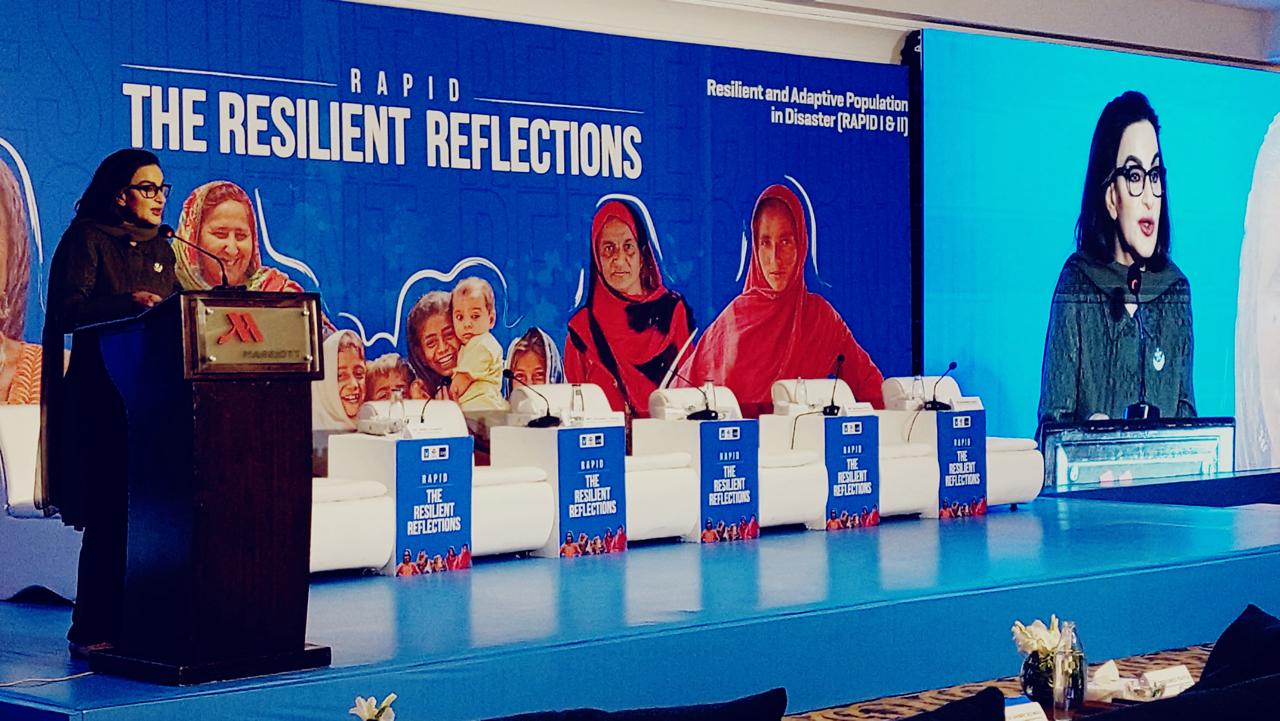Islamabad, Sep 30: Senator Sherry Rehman, the chair of the Senate Standing Committee on Climate Change, stated on Saturday that Pakistan will experience a shortage of water by 2050, with certain regions already experiencing it.
She was giving a speech as the primary guest at the two-year Green Urban Development (GUD) project’s closing celebration, which was organized with assistance from the US embassy by the School of Leadership Foundation (SoLF) and the Institute of Urbanism (IoU).
The senator applauded the Green Urban Development (GUD) project for enabling and inspiring students to come up with workable solutions for a more sustainable future through its youth-led eco-entrepreneurship initiative.
According to her, the federal capital lacks trash collection locations and procedures, which pollutes the water and soil and allows plastics to harm the delicate marine ecosystems found in the rivers and oceans.
She extended an invitation to young eco-entrepreneurs to visit Rawal Dam and examine its water pollution as a case study in order to devise a practical plan to rid the reservoir of pollutants. “Every day, nine million gallons of waste virtually all toxic and used by domestic households are deposited into Rawal Dam,” the spokesperson claimed.
Given that Pakistan’s urbanization rate was only 3.3 percent, Ms. Rehman cautioned that it was imperative to safeguard both the present and the future in the face of drastically accelerated climatic disasters.
In contrast to the showy huge climate conferences that come with big commitments but end up with little action, the senator claimed that the federal capital should create its own ecosystem of circularity to raise public awareness and develop sustainable solutions.
Lisa Swenarsk, Minister Counselor for Public Diplomacy at the US Embassy, thanked the panelists and experts and praised the GUD youth-led eco-entrepreneurship program that was carried out by the IoU and SoLF. The program committed to green solutions and promoted collaborations among important stakeholders.
In order to address the urgent problems caused by urbanization and find solutions, the US mission established strong partnerships. For example, co-urban hubs and Green Urban Development schools at two universities encouraged Quaid-i-Azam University (QAU) students to apply for half a million dollars in funding for projects that could be scaled up.
The future young will be disproportionately impacted by climate change, hence it is critical that the US and Pakistani counterparts work together on climate action. Pakistan’s innovators are paving the path for a better future, and youth-led green companies demonstrate rising leaders tackling climate concerns,” the speaker stated.
She said, “One of the many massive initiatives supported by the US to spend millions of dollars to address the climate crisis is the Green Pakistan Alliance Programme.” Videos on the four eco-entrepreneurship projects were also on display at the event. One such initiative was the Sarsabz Qadam project, which had Comsats University architects using pacers to assist generate electricity while walking. The pacers worked by transforming kinetic energy into electric current.
Sardar Khan Zimri, the Director General of Water Management CDA, Muhammad Bilal Yameen, the Deputy Manager of Operations at RWMC, and Dr. Ejaz Ahmed from the IoU participated in a panel discussion.









